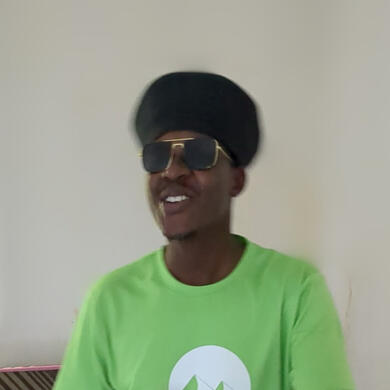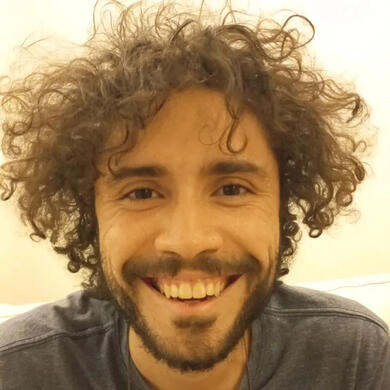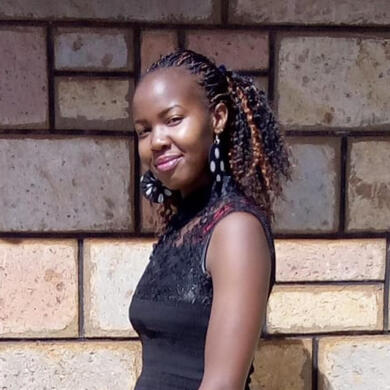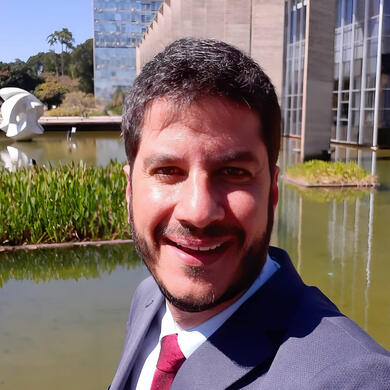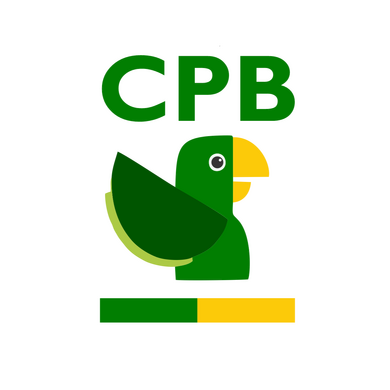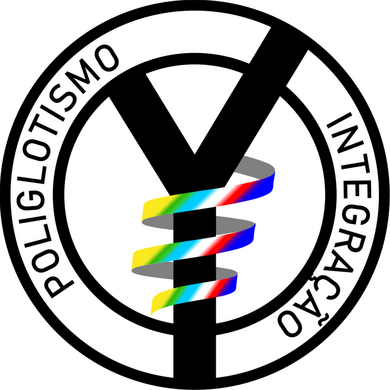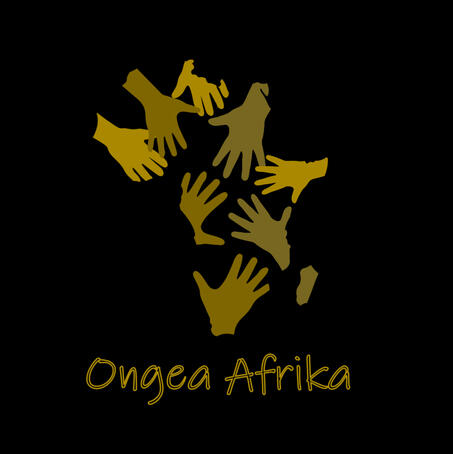
Ongea Afrika
Ongea Afrika is a mass movement aimed at practicing languages and making friends for peace, hope and prosperity.Ongea means “Speak” in Swahili. Why Swahili? This is the language spoken by most countries in Eastern Africa, where the movement was born.
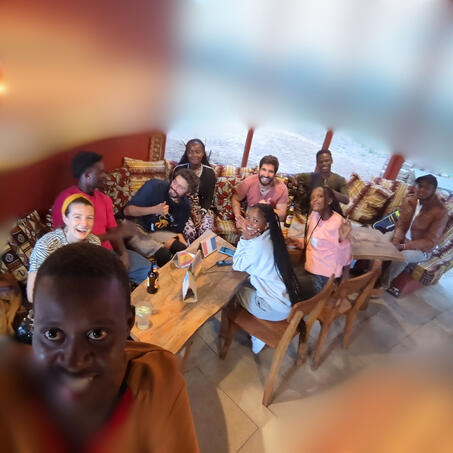
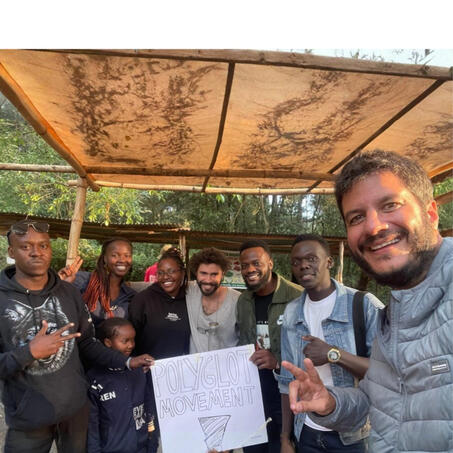
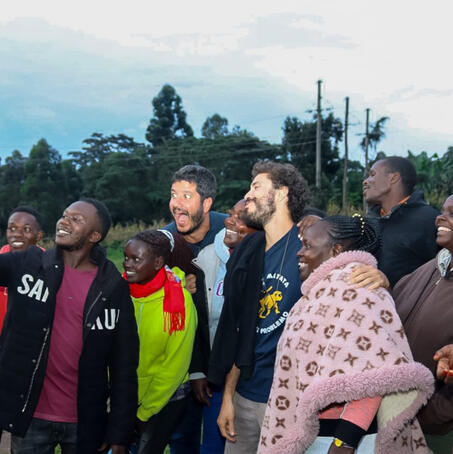
The Sustainability tripod, The Right to Development charter as well as the UN Declaration on Cultural Diversity lay the grounds to think languages as a way out of poverty, as a driver for economic development and social justice. This is a Global South call we want to contribute to.Africa has been multilingual since the dawn of humanity, its citizens and subjects are at least bilingual, many speak the local, the língua franca, and the official languages. Code switching is a fact of life.We stimulate free language exchange - both in terms of money and choice of languages. One does not need to be a polyglot to join the meetings.
What’s the catch one may ask? This mass movement that started in Brazil and reaches Eastern Africa is the natural convergence of like-minded people who fell the call of languages to unite peoples and breed prosperity. There are more people out there feeling the call. The Polyglot Movement is global.In Africa we’ve promoted so far free language exchange meetups in Arusha, Tanzania, and Nandi Hills as well as Nairobi, both in Kenya.This organized mass movement started in 2009 in the Iguassu Falls, Brazil, and has found like-minded people on the ground in South America and Africa. That’s what brings together two Africans and two Brazilians together to found Ongea Africa.
The potential of Ongea Africa
Ongea Afrika is born to meet the social and developmental needs of multilingual countries in a multilingual continent. By promoting free language meetups we aim at making Africans polyglots. We believe this can contribute to:* Qualify participants to work in tourism and the hospitality industry;
* Reduce tensions between ethnicities in the long run, as people learn each other’s languages;
* Establish networks conducive to business opportunities;
* Enhance one’s resume with different languages.Speaking a different language is an act of empathy that leads to economic progress. Practicing languages fosters understanding and can bring about stability. Such are the foundations for the peace and hope Ongea Africa promotes.The potential of the movement is such that the number of different folks captured in pictures shows that tops 120 people joined 7 meetups in Arusha and 2 in Kenya from August 16 to Sep 28. 20 new people are showing up 6 weeks in a row.
What is and what for polyglotism?
Polyglotism refers to the ability of speaking 4 or more languages including the mother tongue. In simpler terms, it alludes to the attempt of learning and practicing a language different of one’s own regardless of the number. The languages could have been learned or acquired in different settings.The effort that goes into learning a new language reveals an open mind to a different culture and way of living. Being an act of empathy, speaking a foreign language promotes cultural diversity and enhances one’s professional profile.The polyglot movement in Africa seeks to leverage the diverse linguistic and cultural landscape to promote understanding, create bonds of solidarity, and bring about prosperity.
Co-founders
Edson Osmond (@Edsmoki) is the Tanzanian guy that hosted Jurobola, organized meetups in Tanzania with him, and created the name Ongea Afrika. Ed also handles the social media channels.
Eddie and Jurobola started in August 16 in Arusha.
Ed is also a professional guide in Arusha and Region, a photographer and designer. Also he is doing social works which bring impact to his community
Georgos Jurobola (@Jurobola) is a vegan nomad that hichhiked his way to different cities in Brazil, MercoSul and now in Africa.
A nature and adventure lover.
He's a coordenator in Clube Poliglota Brasil and Club Políglota Américas. An ex-organizer in the Poliglotar Conference and he is into different social projects such as crudinic, tv crudi, polyart world, and a youtuber wannabe.
Maureen Wanjiru is a Kenyan teacher of English / Swahili /history. She is also a passionate organic farmer and educates people on regenerative agriculture and syntropic agroforestry. When she heard about the movement she engaged instantaneously, as she understood language exchange with and among African countries can contribute to address tribalism, social inequality and bring about business opportunities for polyglots.
Otto Mendonça is the pioneer of the polyglot movement in Brazil and brought the topic of polyglotism to the table of institutions and decision-makers by asking them to”how can polyglots help advance your agenda?” He’s the founder of The Yglota Institute for Polyglotism and Integration and an advocate of languages as a driver for economic development and social justice.
Partners
Ongea Afrika partners with Clube Poliglota Brasil and Yglota Institute for Polyglotism and Integration.Clube Poliglota Brasil 🇧🇷 is the backbone of the free polyglot meetups in Brazil. It gives support to emerging as well as consolidated groups nationwide. There are over 20 active groups holding free meetups both in person and online. Thousands of peoples have benefited from the Clube Poliglota Brazil free meetups to exchange languages and make friends.
Instituto Yglota | Poliglotismo e Integração
The Yglota Institute for Polyglotism and Integration was born to burst the polyglot bubble and make polyglotism reach decision-makers, institutions, researchers and activists to benefit society and bring about economic prosperity through languages. Founded in 2023 the Iguassu Region (Brazil, Argentina, Paraguay), the cradle of the polyglot movement in South America, Yglota has published two books and held two events in Brazil and Argentina uniting politicians, academicians, activists and practitioners to promote polyglotism as a driver of economic and social development. Its mission is to bring peoples together through languages.
